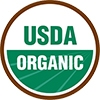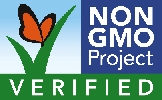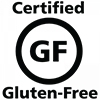We offer Free Delivery on UK online orders over £25! We Ship to Europe!
Offers are subject to nutivauk.com's discretion and may be withdrawn at any time and without notice.

Are your products Organic?
All of our products have the following certifications: Organic, Non-GMO, Kosher
Are your products gluten free?
Our products are naturally non-gluten, however they are not all certified gluten-free. At present, our chia seed and coconut flour are certified gluten-free and we are actively pursuing gluten-free certification for other products, in response to requests from our customers.
I have Celiac disease / severe gluten-intolerance. Do you recommend that I use your products?
We recommend that you consult your healthcare provider as to whether it is necessary for you to consume only certified gluten-free products.
I see you mention soy on your labels. Do any of your products contain soy?
No, our products do not contain soy
Do your products contain dairy?
No, our products do not contain dairy.
I have a life threatening peanut allergy. Would you recommend that I use your coconut oil?
Peanut oil is present in the facility that manufactures our coconut oil. You’ll see on our labels: Processed in a facility that also processes peanut oil.
I have a tree nut allergy. Would you recommend that I use your products?
Our products do not contain tree nuts (other than coconut which is recognized as a tree nut) but are packaged in facilities that also process tree nuts. We advise you to make sound purchasing decisions based on individual sensitivity and risk tolerance.
Do your products contain sulfites?
No, our products do not contain sulfites
What other products are present in the same manufacturing facility?
The following items are present in the same manufacturing facility: Peanut products (unrefined oil), Tree Nuts (unrefined oils: Coconut, Almond, Walnut), Dairy products (milk powder), Soybean products (unrefined oil), Egg, Wheat (flour products)
Differences between Coconut Manna, Coconut Oil and Creamed Coconut?
Coconut Manna is made with fresh organic coconut meat, which is flaked and conveyed through a hot air dryer, within a few hours of shelling, and is then ground like a nut butter. It is not pasteurized or refined. It is a whole food coconut butter and it contains protein, carbohydrates, fibre, and oil. It's ground, whole coconut that has the water removed. The oil in Coconut Manna tends to separate to the top. Like any organic nut butter, please remember to stir before using. In cold weather, place jar in hot water for 5-10 minutes and stir. Use care to not get water in the jar. Any brown specks are natural to coconut. No refrigeration required; spreads easily at temperatures above 73°F; store at room temperature out of direct sunlight. The percentage of medium chain triglycerides and lauric acid in the oil portion of the Coconut Manna is the same as coconut oil, but remember there's 9 grams of fat per 14 gram serving." O: It's ground whole coconut that has the water removed, the oil that has been expeller-pressed from fresh coconut meat
I'm concerned about the THC levels in the Hemp Oil. Is the product safe to use?
Nutiva’s hemp seed oil is a vegetable oil which is cold expeller pressed without use of chemicals, preservatives, or additives from whole, raw hemp seed. The trace THC levels in our hemp foods are barely measurable, less than 10 parts per million, which is the Health Canada standard. All of our hemp is grown for us in Canada.Some people use the term hemp oil as a euphemism for cannabis oil, also called hash oil, which is viscous liquid resin extract made from the leaves and flowers of drug varieties of the plant. Our hemp oil is a vegetable oil which is cold pressed from the seeds of low-THC oilseed varieties.
What's the difference between virgin and extra-virgin products?
Please note that there is NO difference between Virgin and Extra-Virgin Coconut Oil. We previously used the term "extra-virgin" to emphasize our commitment to quality. However, as a leader in coconut oil, Nutiva is committed to complying with global regulations that do not allow the term "extra-virgin" in regard to coconut. When you see the term Virgin on our packaging, rest assured that the product is still the highest quality and has not changed.
My coconut oil is now liquid. It was solid when I bought it at the store. Is it still okay?
This is our most frequently asked question. Yes, it's perfectly okay. Coconut oil melts at about 76°F. Below this temperature it is a solid; above, it is a liquid.
Does coconut oil need to be refrigerated?
No, coconut oil does not need to be refrigerated. As a matter of fact, if you put coconut oil in the refrigerator, it becomes nearly as hard as rock, a feature which can be useful in warm weather.
What is the shelf life of Nutiva's coconut oil?
Nutiva's Organic Virgin Coconut Oil is very stable with a shelf life of at least two years
What type of Jars is Nutiva Coconut Oil Packaged in?
Nutiva packages our oil in three types of materials: Glass jars, clear PET and white HDPE. We have found the white HDPE holds up better for shipping via UPS or USPS during the hot summer months. Also note Nutiva containers are made without BPA. Bisphenol A or BPA is used in some plastics and tin cans.
Does your packaging contain BPA, BPS or BPF?
All our packaging is certified non BPA, BPS and BPF.
Are Nutiva's hemp products raw?
Yes, Nutiva's hemp products are cold-processed (under 104°F) from raw, live hemp seeds. Nutiva utilizes a mechanical process to remove the hard shells, yielding our delicious shelled hemp seeds. Our hemp oil is expeller-pressed from the seeds without the use of hexane or other toxic solvents. Our hemp protein powder is made from specially milled hemp seed cake with the oil removed
How should I store my hemp seed, hemp oil, and hemp protein powder?
It is best to keep hemp products refrigerated or in the freezer and to use them within 8-12 weeks of opening. You can also store unopened hempseed products in a cool dry place such as a basement.
If I recently consumed hemp foods, could I fail a drug test?
If the only source of the psychoactive THC in your body is from hemp foods, produced from Canadian grown hemp seeds and eaten in reasonable quantities, it is virtually impossible to fail a drug test by ingesting hemp foods due to the fact that THC levels in our products are barely measurable.
Are rainforests and orangutan habitats destroyed to grow palm fruits for your Organic Red Palm Oil?
No, Rainforests and orangutan habitats are not destroyed in the growing of Nutiva’s Organic Red Palm Oil. The region of Ecuador where the oil is grown has numerous small family farms, averaging 10 hectares (about 25 acres), interspersed throughout the regional forests. These subsistence farms were planted many years ago and are now being worked by second and third generation farming families. As an organic farm, they have a very healthy environment for animal and plant life that blends with the surrounding forest.While Red Palm Oil grown in SE Asia often contributes to rainforest and orangutan habitat destruction, Nutiva’s Organic Red Palm Oil does not. In fact, orangutans don’t live in Ecuador, which is located in South America. In addition, most palm oil is non-organic, which results in farmers spraying Roundup™or other harsh herbicides at the base of each tree twice year. Organic growing practices avoid introducing such toxins into the environment. In addition, Nutiva has partnered with Natural Habitats in Ecuador to ensure that no deforestation or habitat destruction results from the growing or harvesting process. Nutiva is also promoting social programs in the area by building a small health clinic for the local doctor, and hiring a full-time soccer coach and providing uniforms for the local youth.
What is the difference between Palm Oil and Coconut Oil? Are they both from the Coconut Tree?
Both Palm and Coconut come from the palmtree family, but they are different species. While both are considered tropical oils, the fat and nutritional profile of each differs; palm fruit oil (not to be confused with palm kernel oil), is approximately 45% saturated fat with a high percentage of monounsaturated fat and coconut oil is approximately 90% saturated fat.
What is the smoke point of Red Palm Oil?
302° F
How do you store Red Palm Oil?
It is best stored in a cool, low light location. Refrigeration is not necessary, but will extend the shelf life.
Does Red Palm Oil contain any gluten?
No, red palm oil does not contain gluten
Nutiva Certifications:
Certified Organic
We use the finest certified organic ingredients, grown without pesticides and herbicides — safer for you and for the planet. All our products are certified organic by Quality Assurance International (QAI) and Ecocert (for use in the European Region (EU)).
Non-GMO Verified
We are concerned about the impact genetically modified organisms (GMOs) have on the health of people and planet. We have always had a non-GMO policy and we promise we will always source only non-GMO ingredients. All our products are verified non-GMO by the Non-GMO Project. The Non-GMO Project is a non-profit organization committed to preserving and building the non-GMO food supply, educating consumers, and providing verified non-GMO choices.
Fair Trade
Our red palm products are certified fair-trade by Fair for Life. Fair for Life Social & Fair Trade Certification assures that human rights are safeguarded at all stages of production, that workers enjoy good and fair working conditions and that smallholder farmers receive a fair share. Fair trade improves the livelihood of smallholder farmers and workers by providing the means for social community projects.As of January 2014, we achieved fair-trade certification for our coconut oil in (2) sizes, our 15oz. and 23oz. glass containers. These sizes of coconut oil are fair-trade certified by Fair Trade USA. Fair Trade USA enables sustainable development and community empowerment by cultivating a more equitable global trade model that benefits farmers, workers, consumers, industry and the earth.
Gluten-Free
As of early 2014, we acquired gluten-free certification for our chia and coconut flour. Please look for the gluten-free symbol on our new packaging. In response to requests from our community, we are pursuing gluten-free certification for additional products.
Kosher
Many of our products are certified kosher by Orthodox Union (Union of Orthodox Jewish Congregations of America). Please refer to product packaging for details.
B-Corp Certified
B Corporations are certified by the nonprofit B Lab to meet rigorous standards of social and environmental performance, accountability, and transparency.
Safe Quality Food (SQF)
We hold SQF certification which assures buyers and customers that food has been produced, processed and handled according to the highest standards.






